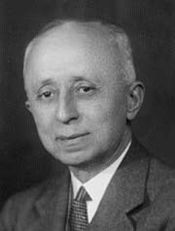Refet Bele
| Refet Bele 1314-P. 39 |
|
|---|---|
 |
|
| Born | 1881 Salonica, Ottoman Empire |
| Died | October 3, 1963 (aged 81–82) Istanbul, Turkey |
| Buried at | Zincirlikuyu Mezarlığı State Cemetery |
| Allegiance |
|
| Years of service | Ottoman: 1899–1919 Turkey: July 13, 1919 – December 8, 1926 |
| Rank | Mirliva |
| Commands held | Division of the intelligence of the headquarters of the Fourth Army, 10th Division, 3rd Division, 11th Division, Inspector of the Rear Area of Jerusalem, 53rd Division, XXII Corps (deputy), XX Corps, Gendarmerie General Command, III Corps Minister of the Interior, Southern Part of the Western Front, Minister of Interior, Minister of National Defense, Representative of the TBMM government in Istanbul |
| Battles/wars |
Balkan Wars First World War War of Independence |
| Other work | Member of the GNAT (Izmir) Member of the GNAT (Istanbul) |
Refet Bele also known as Rafet Bey or Rafet [Refet] Pasha (1877; Salonica – October 3, 1963; Istanbul) was an officer of the Ottoman Army and the Turkish Army, where he retired as a general.
He was born to a family in Thessaloniki in 1881. He took the surname Bele because of his grandfather who was originally from Byala/Bele, Bulgaria. Because of the troubles in the Balkans his family moved first to Istanbul but settled later back to Thessaloniki when he was an infant. He studied in the military academy, enrolled in the army and became a member of the Committee of Union and Progress. He took part in the Italo-Turkish War (1911) and then in the Balkan Wars(1912-1913) in which his hometown was lost to the Greeks.
He took part in World War I and served with distinction at the Palestine front and at the Second battle of Gaza. After the British advance in 1918 he was cut off by his troops but managed to reach the Ottoman base at Tyre 75 miles north, after travelling one week through British lines. He did not speak English but because he moved at night and responded to questions with saluting and riding on a walk he avoided to be captured. He returned to Istanbul after the Armistice of Mudros in 1918.
While in Istanbul, most of Anatolia began to be occupied by foreign powers, the Greeks landed at Smyrna in 1919 where an anti-Turkish massacre took place. In response to the occupation he decided to join the Turkish nationalist movement and crossed over to Anatolia to organize resistance. He took part in the Amasya Circular of 1919 and later in the Erzurum Congress, Alaşehir Congress and Sivas Congress. He later served as minister and later as commander at the Western Front against the Greek armies. He put down several local revolts against the Ankara government. However he had several political disputes with Atatürk and became out of favor. He was tried in court but acquitted of the assassination of Atatürk in 1926. In 1926 he retired from the army and parliament deputy. In his later life he took several different occupations including a second deputy time. He died in Istanbul in 1963.
...
Wikipedia
